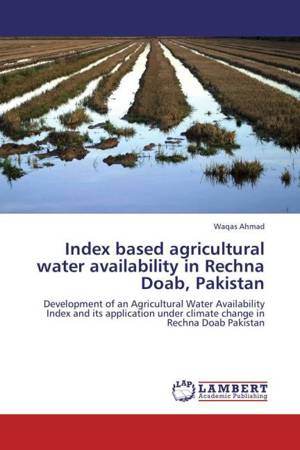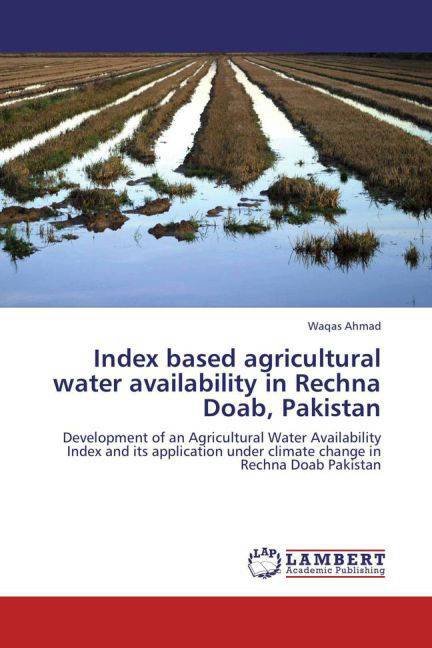
- Afhalen na 1 uur in een winkel met voorraad
- Gratis thuislevering in België vanaf € 30
- Ruim aanbod met 7 miljoen producten
- Afhalen na 1 uur in een winkel met voorraad
- Gratis thuislevering in België vanaf € 30
- Ruim aanbod met 7 miljoen producten
Zoeken
Index based agricultural water availability in Rechna Doab, Pakistan
Development of an Agricultural Water Availability Index and its application under climate change in Rechna Doab Pakistan
Waqas Ahmad
Paperback | Engels
€ 58,45
+ 116 punten
Omschrijving
Climate change is believed to affect the hydrological cycle and thus it would have significant implications on the regional scale agricultural water availability. In this study an Agricultural Water Availability Index was developed for Rechna doab, Pakistan. This index was used to evaluate the present and future agricultural water availability. Moreover this study also demonstrates the use of remote sensing to determine the soil moisture content on a regional or basin scale. Water availability for the future scenarios was assessed by statistical downscaling technique to downscale Tmax, Tmin and precipitation using the HadCM3 GCM outputs for the study area. The study results demonstrate that the variation in water availability will increase both spatially and temporally and there will be critical water shortage during the wheat sowing period. Therefore suitable climate change adaptation options were forwarded to cope with the shortages. This study can be used for making better surface water allocation in the future on the basis of knowing water availability on a spatial scale.
Specificaties
Betrokkenen
- Auteur(s):
- Uitgeverij:
Inhoud
- Aantal bladzijden:
- 128
- Taal:
- Engels
Eigenschappen
- Productcode (EAN):
- 9783659233913
- Verschijningsdatum:
- 15/09/2012
- Uitvoering:
- Paperback
- Afmetingen:
- 152 mm x 220 mm
- Gewicht:
- 200 g

Alleen bij Standaard Boekhandel
+ 116 punten op je klantenkaart van Standaard Boekhandel
Beoordelingen
We publiceren alleen reviews die voldoen aan de voorwaarden voor reviews. Bekijk onze voorwaarden voor reviews.











